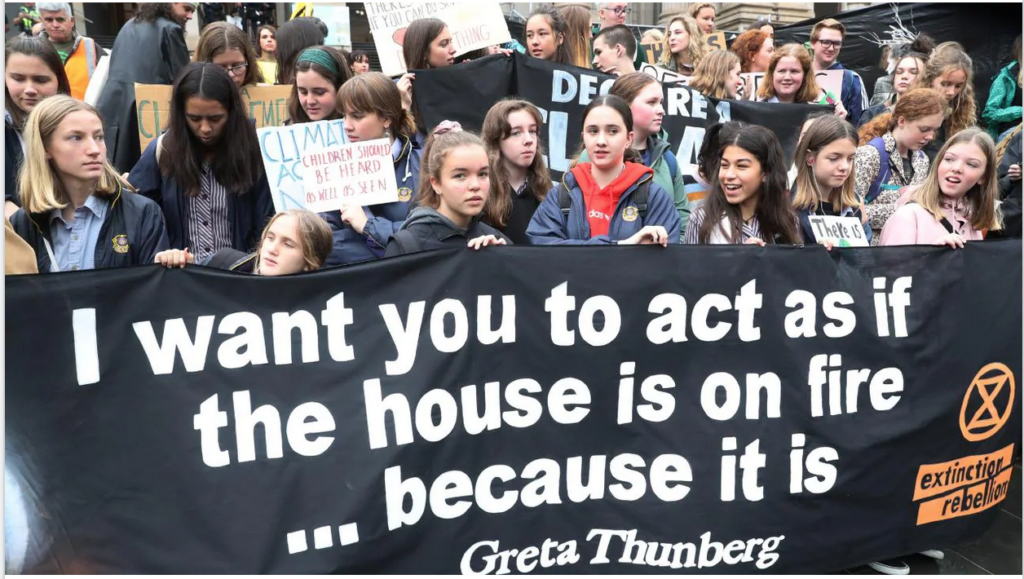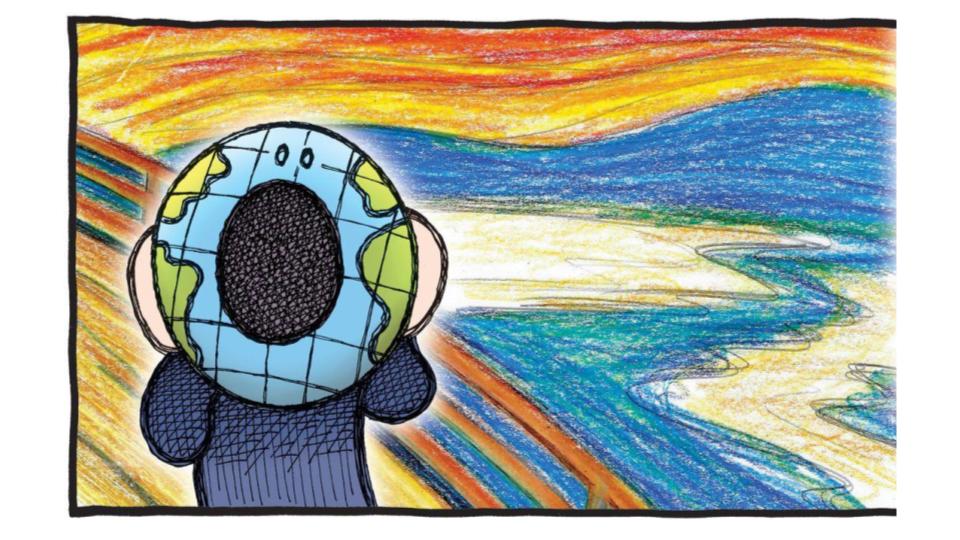

Tuesday, April 12 • 6:pm
Climate change anxiety is a growing health concern among the broader, and in particular the younger, population. With regard to climate change, many have pinpointed denial as one of the prominent responses people exhibit when being exposed to the possibility of the death of the human species, themselves, or their offspring, which severely inhibits development of resilience or adaptation.
Why do people react to the threat of climate change differently? Why does it seem like many don’t really react at all, whereas others are scared and can’t think of anything else? Generally, climate change has been linked to mental health directly as climate-related hazards such as extreme heat, extreme weather events, and morbidity associated with vector-borne disease all may serve to increase mood and behavioral disorders amongst people with pre-existing conditions. Climate change can also be linked to mental health effects indirectly in that the perceived threat to well-being and survival is a source of distress, anxiety, and fear; however, this awareness may also trigger climate change mitigation and adaptation behaviors that support community, build psychosocial resilience, and encourage behavior change toward increased sustainability.
For our April monthly meeting, our speaker, Sabrina Helm, Associate Professor at UA’s School of Family and Consumer Sciences, will share her research into psychological effects of climate change, with insights into adaptive and maladaptive responses ranging from climate hope and activism to climate grief and denial.
In her research, she analyzes the psychological consequences of climate change as a pre-traumatic stressor; that means independent of people’s immediate exposure to environmental change or disaster. Just thinking about climate change or seeing news reports on climate change can affect some of us. Evolutionary biology may help explain some of our psychological reaction patterns. In the presentation, Prof. Helm explores how prominent climate anxiety is among people today, what it means, how typical human reactions to climate change may be explained, what other psychological responses to climate change exist, and how mental health specialists and we as individuals can cope with climate change anxiety.

For further background on these issues, you may want to watch a recent feature on “Arizona Illustrated” that aired on November 23, 2021, titled “Solastalgia – Grief and anxiety caused by the disconnection to the natural world.” It features Prof. Helm and some of her work. https://www.azpm.org/p/video/2021/11/23/203736-solastalgia/
